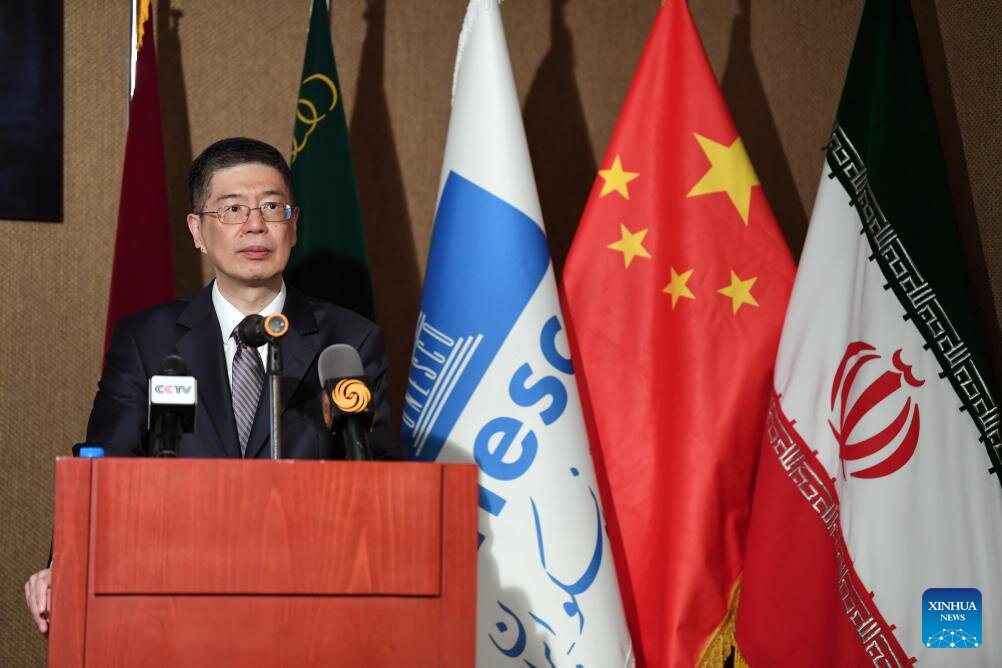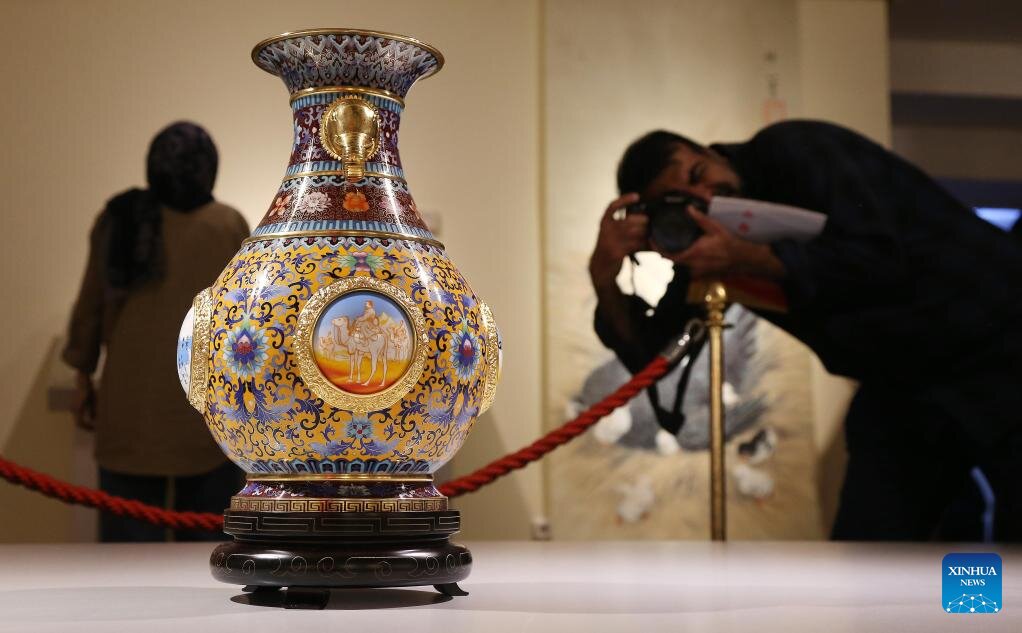Tehran exhibit of Chinese arts celebrates centuries of exchange along Silk Road

TEHRAN – A loan exhibition showcasing selected works of Chinese art and culture was inaugurated in Tehran on Saturday evening, marking centuries of trade and cultural exchange along the Silk Road.
The event, held at the Malek National Library and Museum, drew prominent attendees from both countries, including Hu Muqing, the president of the Shanghai Art Collection Museum, Amir Khorakian, the president of the Malek National Library and Museum, and Cong Peiwu, the Chinese Ambassador to Iran.
The exhibition, titled “Endless Clouds of the Silk Road,” will run until November 10, featuring a carefully curated collection that reflects centuries of cultural interaction along the ancient Silk Road. On display are paintings created by Chinese artists, manuscripts by renowned Chinese authors, and ancient coins used in Silk Road trade, all of which highlight the profound historical ties between the two nations.
During the opening ceremony, the Chinese envoy emphasized the deep historical relationship between China and Iran.
He noted that such historical ties have created a solid foundation for the two countries’ present cultural exchanges.
The successful holding of the exhibition will inject new vitality into cultural exchanges between China and Iran, providing more support for the deepening of friendship between the two countries, the ambassador added.

A visitor takes photos during an exhibition of selected works of Chinese art and culture at the Malek National Library and Museum in Tehran, Iran, Oct. 12, 2024. (Xinhua/Shadati)
Khorakian, for his part, echoed the ambassador’s sentiments, noting that despite the great distance between the two countries in ancient times, the bonds of cultural exchange have remained unbroken for thousands of years.
“In the vast political landscape of the world, only a handful of countries can take pride in millennia-old civilizations rich in culture. Iran and China are among those few,” Khorakian said.
He also highlighted the historical significance of the Silk Road in Iranian culture. “In ancient Iranian thought, China was regarded as the farthest and most inaccessible part of the world,” he said, quoting a well-known saying attributed to the Prophet of Islam: Seek knowledge, even if it is in China.
This reverence for knowledge and connection, he emphasized, has driven the historical friendship between the two nations.
Hu, also addressed the audience, expressing his enthusiasm for the cultural partnership between China and Iran.
The Shanghai Art Collection Museum has been at the forefront of international cultural exchange, particularly along the Silk Road, Hu said.
He added that the cooperation between his museum and the Malek National Library and Museum was a pivotal step in expanding the reach of Chinese art to Iranian audiences.
The exhibition includes a number of works by contemporary Chinese artists, one of whom gave a speech during the ceremony. The artist, whose works are among the highlights of the exhibition, expressed gratitude to both the Chinese Embassy and Iran’s cultural heritage authorities for the opportunity to display his pieces.
“My goal with these works was to portray the cultural exchanges that took place along the Silk Road, where merchants not only traded goods but also brought parts of their culture with them,” the artist explained.
The exhibition, which will remain open to the public until November 10, offers an immersive journey into the artistic and cultural achievements of China, highlighting the historical significance of the Silk Road as a bridge between East and West.
AM
